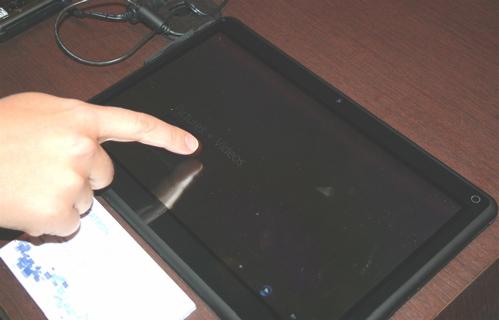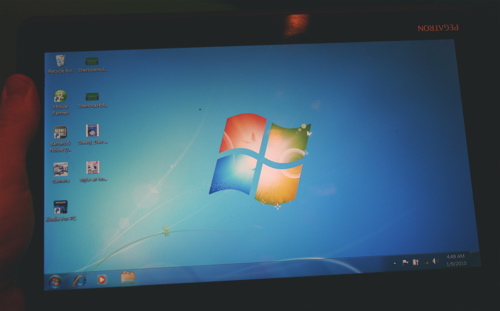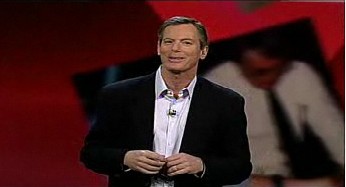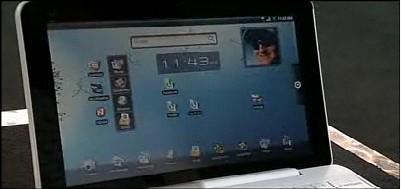By Patrick Roanhouse, Betanews
US Federal Communications Commission Chairman Julius Genachowski was interviewed by CEA President and CEO Gary Shapiro at a Super Session panel January 8 at CES 2010. Topics of discussion included Chairman Genachowski's efforts to modernize the FCC and his vision for the agency in the coming decade.
Genachowski and Shapiro also discussed developments in crafting new pro-competition policy, and the ability to develop incentives to keep mobile and hardwired broadband cheap.
At issue first was the FCC's authority to regulate a free and open Internet, brought to the surface by oral arguments being held that day in the Comcast v. FCC case in the Federal Appeals Court. Genachowski declined a direct reaction, stating he wasn't able to fully read the ruling due to being on the CES floor. He did go on to say the FCC needs to keep the Internet open and free to the people and open to everyone on a equal basis.
Competition in any market keeps people fair, the Chairman said. Access to competitors is what typically allows fair prices, but the way that most providers have always done it is contrary to competition.
The FCC's national broadband plan is due before Congress next month -- or rather, the month after that, which is March. That correction drew a few laughs from the crowd, who were probably aware that the Chairman called for a delay of about one month.
Keeping the regulatory process open, the Chairman went on to say, is the most important thing that allows anyone from the public or marketplace to have access to the information of inquests and panels. Public notices let people know when events are happening. In general, Genachowski continued, the country should have had this plan years ago, for a full deployment of high speed broadband for America.
In response to whether the FCC has the authority to regulate wired services as telecommunications services, Genachowski said broadband consists of both wired and wireless service. In that sense, there are two classes of spectrum: one for government, and the other for the consumer and commercial space.
Genachowski pointed to the looming crisis in available spectrum for expanding Internet applications. Tackling this problem requires several simultaneous attacks on multiple fronts:
- Find more spectrum and find how to get around physics constraints because of each type not allowing maximum transfer for data;
- Make sure that the spectrum is used most efficiently;
- Make it so that on the device and software level, devices are greatly more efficient and more precise in their usage.
Access to the Internet is important, said Genachowski, because of the fact most jobs are only putting applications online now. Digital Literacy is something we really need to put more focus on, he said.
For the evolution of the FCC, the Chairman believes all all documents the FCC collects should be open to the public and searchable for anything related. He referred to Reboot.FCC.gov, a new platform for communicating with the public to help spread information to the people, and to get responses back on how the people want the information.
Genachowski wants his work to be remembered at the FCC as moving the Commission to the 21st century -- to ubiquitous broadband, freeing spectrum, and helping inform family and consumers. He said the FCC is a strange organization with comparison to similar regulatory agencies in other countries, because of the fact that in other countries, usually a different government agency handles wires, another one handles wireless, another one handles small scale electronics, another one handles large-scale electronics.
The Chairman's talk was briefly interrupted at one point by a heckler, whom we were not able to understand.
Copyright Betanews, Inc. 2010









 According to multiple eyewitness reports Friday, including from
According to multiple eyewitness reports Friday, including from 




![Mirasol low-power MEMS display for e-readers, in a proof-of-concept built by Qualcomm. [Courtesy Qualcomm MEMS Technologies, Inc.]](http://images.betanews.com/media/4381.jpg)







 In his company's first-ever keynote address to the Consumer Electronics Show Friday morning, Qualcomm CEO Dr. Paul Jacobs made a kind of prediction that appears, given his position, to inevitably become a self-fulfilling prophecy: As consumer electronics devices throughout the home, mobile space, and workplace become endowed with systems-on-a-chip that are based on wireless phone reference designs, almost everything with an on-switch will inevitably become, at its core -- whether it's used for that purpose or not -- a telephone.
In his company's first-ever keynote address to the Consumer Electronics Show Friday morning, Qualcomm CEO Dr. Paul Jacobs made a kind of prediction that appears, given his position, to inevitably become a self-fulfilling prophecy: As consumer electronics devices throughout the home, mobile space, and workplace become endowed with systems-on-a-chip that are based on wireless phone reference designs, almost everything with an on-switch will inevitably become, at its core -- whether it's used for that purpose or not -- a telephone. Among the Snapdragon-based netbooks that could take full advantage of this deal is an Android netbook whose design looks not at all unlike the "slate" PC demonstrated by Microsoft CEO Steve Ballmer Wednesday evening. Although Android was the flavor of Linux for this device, Qualcomm also lets Lenovo do its own flavor of Linux for its
Among the Snapdragon-based netbooks that could take full advantage of this deal is an Android netbook whose design looks not at all unlike the "slate" PC demonstrated by Microsoft CEO Steve Ballmer Wednesday evening. Although Android was the flavor of Linux for this device, Qualcomm also lets Lenovo do its own flavor of Linux for its 
